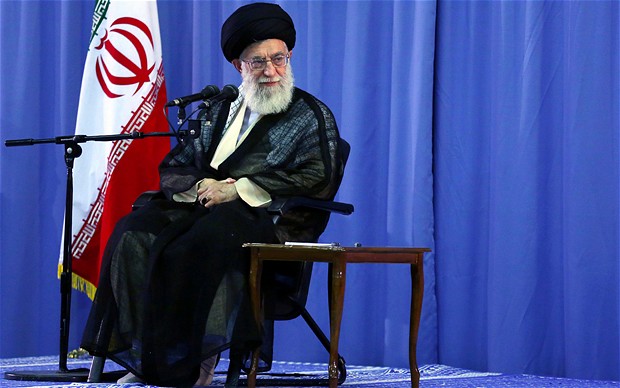 Exclusive: U.S. Scales-Back Military Exercise with Israel, Affecting Potential Iran Strike A smaller U.S. contingent may make it more difficult for the Israeli government to launch a pre-emptive strike on Tehran's nuclear program. By Karl Vick and Aaron J. Klein | August 31, 2012 | + inShare1 Log In with Facebook Sharing TIME stories with friends is easier than ever. Add TIME to your Timeline. Learn More XSharing With Friends Add TIME to your Timeline to automatically share TIME stories, photos and videos with your Facebook friends. Share Only the Stories You Want TIME will alert you each time a story is shared and you'll have the option to keep or remove each story from your Facebook Timeline. Plus, view "Your Activity" to see a history of stories you've read and remove stories from your Timeline. ABIR SULTAN / EPA Israeli soldiers are seen during a military exercise in Golan Heights, Aug. 21, 2012. Israeli Armed Forces have been conducting maneuvers amid raising tensions in the region. Seven months ago, Israel and the United States postponed a massive joint military exercise that was originally set to go forward just as concerns were brimming that Israel would launch a strike on Iran’s nuclear facilities. The exercise was rescheduled for late October, and appears likely to go forward on the cusp of the U.S. presidential election. But it won’t be nearly the same exercise. Well-placed sources in both countries have told TIME that Washington has greatly reduced the scale of U.S. participation, slashing by more than two-thirds the number of American troops going to Israel and reducing both the number and potency of missile interception systems at the core of the joint exercise. “Basically what the Americans are saying is, ‘We don’t trust you,’” a senior Israeli military official tells TIME. The reductions are striking. Instead of the approximately 5,000 U.S. troops originally trumpeted for Austere Challenge 12, as the annual exercise is called, the Pentagon will send only 1,500 service members, and perhaps as few as 1,200. Patriot anti-missile systems will arrive in Israel as planned, but the crews to operate them will not. Instead of two Aegis Ballistic Missile Defense warships being dispatched to Israeli waters, the new plan is to send one, though even the remaining vessel is listed as a “maybe,” according to officials in both militaries. A Pentagon spokesperson declined to discuss specifics of the reduced deployment, noting that planning for the exercise was classified. But in an e-mailed statement, Commander Wendy L. Snyder emphasized that the Israeli military has been kept informed of the changes. “Throughout all the planning and coordination, we’ve been lock-step with the Israel Defense Force (IDF) and will continue to do so,” Snyder said. U.S. commanders privately revealed the scaling back to their Israeli counterparts more than two months ago. The official explanation was budget restrictions. But the American retreat coincided with growing tensions between the Obama and Netanyahu administrations on Israel’s persistent threats to launch an airstrike on Iran. The Islamic Republic would be expected to retaliate by missile strikes, either through its own intermediate range arsenal or through its proxy, the Hizballah militia, which has more than 40,000 missiles aimed at Israel from neighboring Lebanon. In the current political context, the U.S. logic is transparent, says Israeli analyst Efraim Inbar. “I think they don’t want to insinuate that they are preparing something together with the Israelis against Iran – that’s the message,” says Inbar, director of the Begin-Sadat Center for Strategic Studies at Bar-Ilan University. “Trust? We don’t trust them. They don’t trust us. All these liberal notions! Even a liberal president like Obama knows better.” The U.S. anti-missile systems are important because while Israel has made great strides in creating anti-missile shields that protect its population, it doesn’t have enough of them to deploy around the entire country, even with the U.S. aid specifically dedicated to building more (as well as crucial offensive capabilities, such as mid-air refuelers and possibly bunker-busting bombs). That makes the presence of the Patriots – first deployed to Israel during the First Gulf War, when Saddam Hussein fired Scuds toward the Jewish State — and other U.S. anti-missile systems extremely valuable. Austere Challenge was billed by assistant secretary of state Andrew J. Shapiro last November as “by far the largest and most significant exercise in U.S.-Israeli history.” A stated goal was to “improve interoperability” between American and Israeli anti-missile systems – which are already significantly linked. The U.S. maintains an X-band radar installation in Israel’s Negev Desert, pointed toward Iran and linked to Israel’s Arrow anti-missile system. The radar is extraordinarily powerful, so sensitive it can detect a softball thrown into the air from thousands of miles away. But as TIME reported earlier, only Americans are allowed to see what’s on the screens, a situation that likely serves to inhibit any Israeli decision to “go it alone” against Iran, because the U.S. array can detect an Iranian missile launch six to seven minutes earlier than Israel’s best radar. Difficult as it may be to imagine U.S. decision-makers holding back information that could save Israeli lives, both by giving them more time to reach a shelter, or their interceptors to lock onto and destroy an incoming Shahab-3, the risk looms in the complex calculus of Israeli officials mulling an attack on Iran. Inside Israel, reports persist that prime minister Benjamin Netanyahu and defense chief Ehud Barak are determined to launch a strike, and American officials continue to urge restraint. Israeli analysts say Netanyahu wants Obama to send a letter committing to U.S. military action by a specific date if Iran has not acceded to concessions, but the U.S. administration does not appear to be complying. U.S. Joint Chiefs chairman Gen. Martin Dempsey told reporters in London this week that a military strike could damage but not destroy Iran’s nuclear capability, and added, “I don’t want to be complicit if they choose to do it.” Related Topics: Austere Challenge 12, Efraim Inbar, Ehud Barak, Gen. Martin Dempsey, IDF, Iranian nuclear program, Israeli threat to strike, Joint Exercise, Netanyahu, Obama, iran, israel, Middle East, Military, U.S., Uncategorized Read more: http://world.time.com/2012/08/31/exclusive-u-s-scales-back-military-exercise-with-israel-affecting-potential-iran-strike/#ixzz258sHqNcg THE USA HAS A HOLLY DAY COMING UP RESPECT THOSE WHO HAVE KEEP YOU SAFE.
0 Comments
Iran's supreme leader orders fresh terror attacks on West Iran's Supreme Leader has ordered the country's Revolutionary Guards to intensify its campaign of terror attacks against the West and its allies in retaliation for supporting the overthrow of President Bashar al-Assad in Syria. Ayatollah Ali Khamenei has issed a directive to intensify attacks against the West and its allies around the world Photo: AFP/GETTY < >
7:00AM BST 22 Aug 2012 According to Western intelligence officials, Ayatollah Ali Khamenei gave the order to the elite Quds Force unit following a recent emergency meeting of Iran's National Security Council in Tehran held to discuss a specially-commissioned report into the implications for Iran of the Assad regime's overthrow. Damascus is Iran's most important regional ally, and the survival of the Assad regime is regarded as vital to sustaining the Iranian-backed Hizbollah militia which controls southern Lebanon. The report, which was personally commissioned by Mr Khamenei, concluded that Iran's national interests were being threatened by a combination of the U.N. sanctions imposed over Iran's nuclear programme and the West's continuing support for Syrian opposition groups attempting to overthrow the Syrian government. Intelligence officials say the report concludes that Iran "cannot be passive" to the new threats posed to its national security, and warns that Western support for Syrian opposition groups was placing Iran's "resistance alliance" in jeopardy, and could seriously disrupt Iran's access to Hizbollah in Lebanon. It advised that the Iranian regime should demonstrate to the West that there were "red lines" over what it would accept in Syria, and that a warning should be sent to "America, the Zionists, Britain, Turkey, Saudi Arabia, Qatar and others that they cannot act with impunity in Syria and elsewhere in the region." |
PTAH
GOT ISHD ON BY WHAT I CREATED AND REPRESENTED THAT IZ EVERYBODY .NOW I KNOW THAT EVEREYBODY TRULY AIN'T GOING,(MAYBE EYE MIGHT SEE WHAT THE END GONE BE).KNOW MATTER HOW THEY DO YOU JUST KNOW THAT SOME PEOPLE ARE STILL HUSTLIN BACKWARDS Archives
October 2012
Categories |
|
|
- KAM
- don't jump into the pacific ocean or evacuate earth 'yeah nothing like that"
- sum moore
- Now it'z Our TIME
- The 1
- multipolar harmonicz
- laptop gate
- zaporozhye nuclear power plant news
- fukushima
- fallout/ radiation
- BOARDER BLOG
- terrorist state
- food now
- Climate change we must Change
- FOCUS FILMZ POLITICAL
- IZM GALLERY
- IZM TV/NEWS
- YOU KNOW WHO IT IZ
- ON YOUR BACK & BEYOND STYLE
- izm party
- Global biz
- ASCENDING MASTERS
- WHAT'Z UP WITH IT
- WORLD WIDE PEACE AND LOVE OR WAR
- JOURNEY OF PTAH
- INNOVATION
- tech/ cyber.S
- colonial semi yuanizm
- WHAT IZMIST DO
- GOLDEN AGE
- focus filmz
- cosmic alignment 2012
- THE PEACE AND LOVE FOUNDATION INC
- PROBLEMS IN LIES THE SOLUTION
- planet DISNEY
- melting pot
- fallout/radiation videos and info
- planet Elizabeth Taylor
- FOCUS FILMZ POLITICAL ON LOCATION
- we R the children
- books of knowledge
- Nu age
- TRUTHIZM" they will watch you die"
- CHEIF
- source of allmediaizm
- ptah messages from the beyond"
- COVID/19
- HEMP & CANOPY NEWZ
- CHINA BLUEIZM
- 4LIGHT IZ ZOUND


 RSS Feed
RSS Feed
